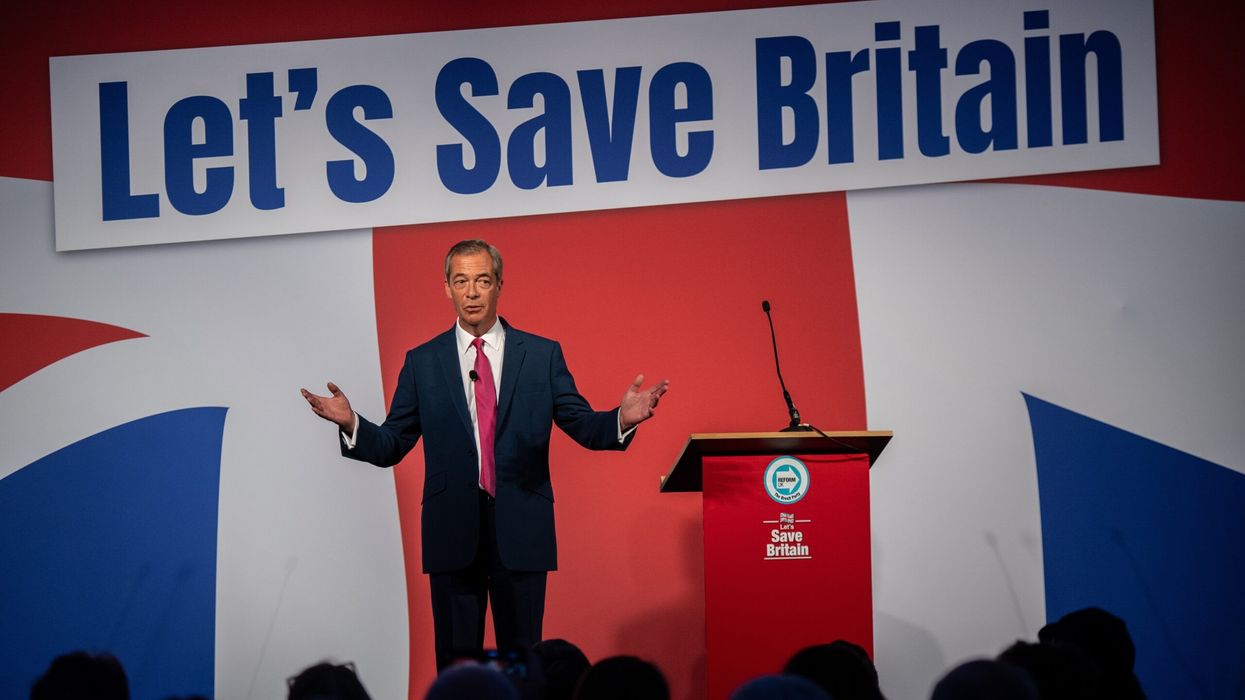Ahead of the upcoming general election this year, the ruling Conservatives find themselves once again challenged by a fringe right-wing political party, originally founded by the eurosceptic populist Nigel Farage.
Reform UK -- formerly called the Brexit Party and whose current leader admires former US president Donald Trump -- rails against immigration, net zero energy policies, and "nanny state" government regulations.
With slogans including "Let's make Britain great" and "Let's save Britain", Reform is trying to tap into disgruntlement among Britons struggling from the worst cost-of-living crisis in decades.
It is currently polling at around 10 per cent in national surveys before a vote that prime minister Rishi Sunak has said will be held some time this year.
Conservative lawmakers fear the group will help prevent an embattled Sunak from securing a fifth consecutive term for his party by splitting the right-wing vote in key constituencies.
With the main centre-left opposition Labour party currently enjoying double-digit leads over the Tories in most opinion polls, political scientists say those concerns are justified.
Reform's leader Richard Tice added to them on Wednesday (3) by ruling out any pacts with the Conservatives, despite alleging that some Tories had pleaded with him not to stand candidates in certain areas.
"The truth is the Tories are terrified," Tice told reporters, adding that he was "absolutely categoric" there would be no electoral deals with Conservatives "under any circumstances."
- 'Punish the Tories' -
Tice, 59, insisted that Reform would put up candidates in every seat in Scotland, England, and Wales, unlike at the last election in 2019 when the Brexit Party stood down in some areas to help Boris Johnson, who won a landslide.
"I'm optimistic that the country quite rightly wants to punish the Tories for breaking Britain," he said, standing next to a UK flag during the press conference at a hotel near parliament.
The English businessman-turned-politician accused Conservatives of presiding over high taxes, "wasteful" government spending and anaemic economic growth, and of failing to take advantage of leaving the European Union.
"Of course, the biggest betrayal of all by this government is on immigration," said Tice, pledging a "one-in, one-out" policy to reduce record levels of net migration to Britain.
He also promised to remove "daft" EU regulations, lift the salary threshold at which income tax payments kick in and scrap Britain's commitment to reach net zero carbon emissions by 2050.
Tice did not spare Labour leader Keir Starmer, saying his party would bring "a catastrophic cocktail of economic incompetence and cultural pillage" that would be disastrous for Britain.
But it is the Tories, in power since 2010, who stand to lose most from disaffected voters turning towards Reform, according to political experts.
Under Britain's first-past-the-post electoral system, where there are no prizes for candidates who finish second, Reform is not expected to win any seats in parliament.
- 'Celebrity' -
But a significant share of votes -- particularly in the so-called "Red Wall" seats of working-class voters in northern England -- would kill off waning Conservative hopes for re-election.
"In the position they're in, getting squeezed still further can make the difference between a defeat and a thrashing," Anand Menon, politics professor at King's College London, told AFP.
The Conservatives have lurched rightwards in recent decades under pressure from more extreme upstarts, firstly the UK Independence Party under Farage's leadership, then Brexit/Reform which he co-founded in 2018.
By pandering to potential Reform voters, the Tories risk alienating more socially liberal voters in the south of England who may opt for the Liberal Democrats instead.
"This is the nightmare they face. It is very, very difficult for them to hold on to one group while keeping the other," Menon said.
Chris Hopkins, politics director at the polling firm Savanta, said there was "little" electoral evidence to suggest that Reform's current polling numbers would translate into actual votes at the election.
Savanta's final Westminster voting intention survey of 2023 showed Labour on 43 per cent support, the Tories on 27, the Liberal Democrats on 10 and Reform on 9 per cent.
The latter's share could rise if Farage returns to front-line politics with the party -- Tice said he was "very confident" that the long-time Brexit cheerleader would play some sort of role.
"He's as close to 'celebrity' as politicians get," Hopkins said of Farage.
"He's also an experienced campaigner, and I think he helps professionalise and legitimise them as a party."
(AFP)




